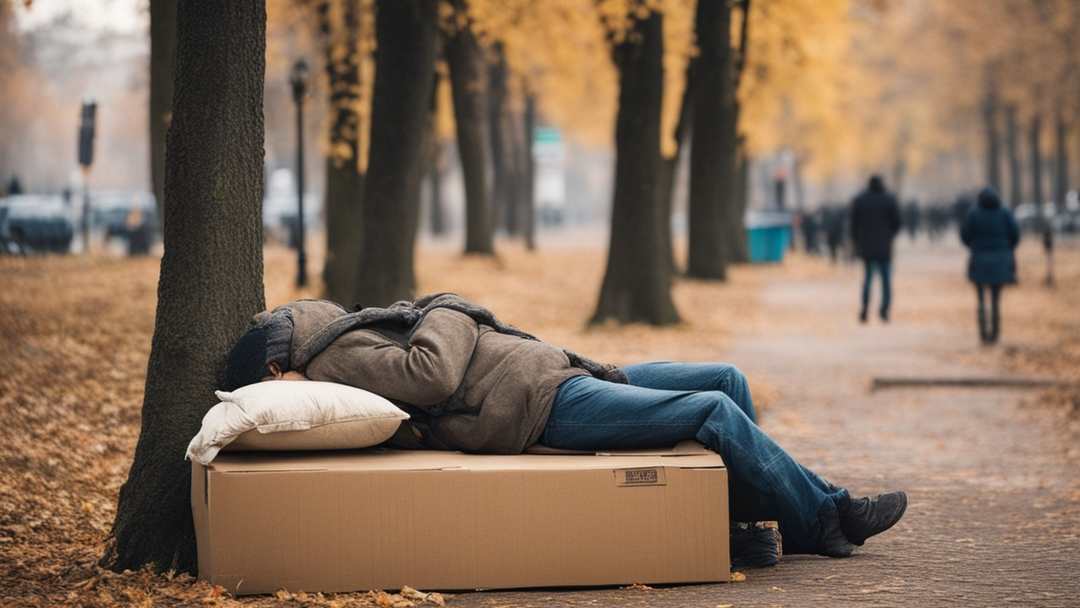Does not amount to “cruel and unusual punishment” under the Eighth Amendment
The Supreme Court has affirmed the validity of ordinances in a southwest Oregon city that restrict individuals experiencing homelessness from utilizing blankets, pillows, or cardboard boxes as protective measures against the elements while sleeping within city limits. In a decision reached by a 6-3 vote, the justices sided with the city of Grants Pass, asserting that the ordinances serve to prohibit camping on public property for all individuals and do not infringe upon the Constitution’s prohibition of cruel and unusual punishment.
Writing for the majority, Justice Neil Gorsuch contended that the Eighth Amendment, which bans cruel and unusual punishment, “serves many important functions, but it does not authorize federal judges” to “dictate this Nation’s homelessness policy.”
Instead, he suggested, such a task should fall to the American people.
Justice Sonia Sotomayor dissented, in an opinion joined by Justices Elena Kagan and Ketanji Brown Jackson. She argued that the majority’s ruling “focuses almost exclusively on the needs of local government and leaves the most vulnerable in our society with an impossible choice: Either stay awake or be arrested.”
In Grants Pass, a city with a population of just under 40,000, as many as 600 individuals experience homelessness on any given night, prompting the city’s decision in 2013 to intensify the enforcement of existing laws that prohibit the use of blankets, pillows, and cardboard boxes for sleeping within city limits.
Violators are subject to significant fines starting at 295 dollars, which can increase to 537.60 dollars if not paid promptly. Receiving two citations may result in local police issuing a ban from city property and anyone who disregards this order can be charged with criminal trespass, which may lead to penalties of up to 30 days imprisonment and a fine of 1250 dollars.
Holding: The enforcement of generally applicable laws regulating camping on public property does not constitute “cruel and unusual punishment” prohibited by the Eighth Amendment.
Judgment: Reversed and remanded, 6-3, in an opinion by Justice Gorsuch on June 28, 2024. Justice Thomas filed a concurring opinion. Justice Sotomayor filed a dissenting opinion, in which Justices Kagan and Jackson joined.
Recommended Citation: Amy Howe, Justices uphold laws targeting homelessness with criminal penalties, SCOTUS blog (Jun. 28, 2024, 1:48 PM), https://www.scotusblog.com/2024/06/justices-uphold-laws-targeting-homelessness-with-criminal-penalties/
Legal Counsel and Your Rights
When facing legal challenges, particularly in criminal cases, it is advisable to seek legal counsel immediately.
An experienced attorney can provide guidance on how to navigate interactions with law enforcement while safeguarding your constitutional rights.
Since 1993 our expert legal defense in navigating criminal law matters and protecting your constitutional rights are what we eat for breakfast everyday.
Contact Komorn Law PLLC if you’re ready to fight and win.
Research us and then call us.
More Rights You Should Know

The 6th Amendment – Do You Know What It Is?
The 6th Amendment: is it still a thing?The 6th Amendment to the United States Constitution is a crucial pillar of the Bill of Rights, designed to ensure fair and just legal proceedings for individuals accused of crimes. Ratified on December 15, 1791, this amendment...

The US Supreme Court and Federal Gun Law Cases
The US Supreme Court and Federal Gun Law CasesChallenges to Federal Gun Laws the right of the people to keep and bear Arms, shall not be infringed Updated July 8, 2024 Ratified in 1791, the Second Amendment provides, “A well regulated Militia, being necessary to the...
Other Articles
Making terrorist threat or false report of terrorism is free speech?
Making terrorist threat or false report of terrorism is free speech?The US Constitution and Michigan Constitution prohibit the government from making laws that abridge the freedom of speech Summary In the case of People of the State of Michigan v. Michael Joseph...
Washtenaw Prosecutor will not file any criminal charges on you
Washtenaw County Policy Directive 2025-01POLICY REGARDING QUANTITATIVE DRUG CHECKING Introduction The overdose crisis in America has persisted for decades, resulting in profound loss and suffering across the nation. Since 1999, opioid overdoses have tragically taken...
Qualifying for a Public Defender in Michigan
In Michigan, individuals charged with a crime have the constitutional right to legal representation.In Michigan, individuals charged with a crime have the constitutional right to legal representation. For those unable to afford a private attorney, the state provides...
Michigan Record Expungement Information
Am I eligible to apply to expunge a criminal record? Is it automatic?So your new girlfriend has a criminal record and you can't get that apartment together. If that's really what you want to do, then here's some information to get that record expunged. What is an...
Drones – What Drones? Update
Drone story update January 28, 2025 NJ drones 'were authorized to be flown by FAA for research,' Donald Trump says The mysterious drones that captivated New Jersey late last year were not enemy craft, but instead were authorized by the FAA, President Donald Trump said...
Terry Stop and Refusal to Identify Yourself to Police
Because this is how it always goes...This is the second part of this post. Read this first - Just Because You're Hanging Out in a High Crime Area Doesn't Make You Suspicious.Standard for Investigatory Detentions / Terry Stops Under Terry v Ohio and other well...
Just Because You’re Hanging Out in a High Crime Area Doesn’t Make You Suspicious
Mere presence in a “high crime” area does not provide particularized suspicion of criminal activity for an investigatory detention.People vs Prude In People v Prude, Prude was in a parked vehicle at an apartment complex that was regularly patrolled by police because...
Gun buyback program – Michigan
There's another bounty to be claimed besides turning in your neighbor.Defined here in HB6144 can mean so many things... “firearm” means any weapon that will, is designed to, or may readily be converted to expel a projectile by action of an explosiveEntrepreneurs get...


















